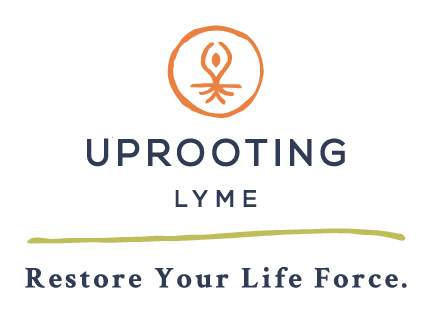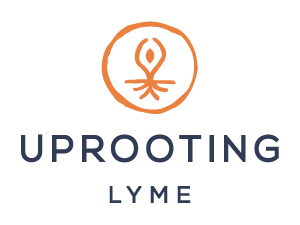
Pregnancy and Lyme
At our clinic, we see many women who discover that they have Lyme while pregnant, or become pregnant while healing from chronic Lyme. Tick-borne infections can pass through the placenta and infect a growing baby at any stage of pregnancy. This brings up many questions and concerns!
Conception
If you are healing from Lyme and also wanting to conceive a child, I don’t recommend trying to become pregnant until you are 6 months symptom-free and continuing to feel healthy and well.
Because our approach to healing Lyme and other related health issues (mold, yeast, or viral burden to name a few) involves detoxification, boosting oxygenation and nutrient stores, and renewal of the life force energy, these strategies also promote fertility! Most people who we treat are in great shape for conception after they have recovered their health.
In preparing to conceive I recommend detoxifying your home to ensure you have clean (toxin-free) water, air and food, and eliminating all chemicals (such as detergents) from your home cleaning and body care routines.
Congenital Lyme Disease
When Lyme disease and pregnancy occurs together, the situation becomes more complicated. In a meta-analysis of 263 pregnancies affected by Lyme, in which the mothers had active Lyme disease, the outcomes were as follows:
Treated: 14.6% pregnancies with sequelae (infection passed on to the baby)
Untreated: 66.7% with sequelae
Unknown treatment: 30.3% with sequelae
The highest rate of adverse outcome (72.7%) was in women with infection acquired prior to or during first trimester, who went without treatment.
This analysis provides substantial evidence for the importance of proactive treatment, even in cases where symptoms are mild. The author of this study also points out the following:
“It is uncertain how many episodes of gestational toxemia, spontaneous miscarriage, spontaneous abortion, stillbirth, culture-negative neonatal sepsis, failure to thrive, developmental delay, congenital heart disease, or sudden infant death syndrome may be due to unrecognized gestational Lyme borreliosis.” – T. Gardner, Meta-Analysis 2004
That is to say, in cases of repeated miscarriage or other loss, Lyme (and similar infections such as Babesia or Bartonella) should be considered as a causative factor that can be cleared through treatment to ensure a healthy outcome for future pregnancies and births.
Treatment Guidelines for Lyme Disease in Pregnancy
The following recommendations will support a healthy pregnancy and protect the baby from contracting the infection(s).
If you are in the midst of being treated for Lyme when you become pregnancy, continue the treatment at least through the 1st trimester. I do recommend shifting off of pharmaceutical antibiotics and using botanicals medicines instead if possible. If symptoms are mild or non-existent, lower / maintenance dosages may be sufficient and carried on throughout pregnancy.
Botanical medicines offer potent yet non-suppressive, non-toxic, immune activating treatment that is safer for baby (and perhaps equally effective). Treatment of some kind is critical!
The antimicrobials we often use with pregnant women include:
Spiro Upward Liposomal Essential Oil Remedy, at a ½ dose (2 Tablespoons / 2x / day); and
Exterminator Tincture (for acute infections) or Lasting Recovery (for chronic infections) at a full dose of 1 teaspoon / 2x / day.
Are Herbs Safe In Pregnancy?
Herbal safety knowledge is derived from understanding an herb’s traditional clinical use, chemical profile, and comparing an herb’s safety record with other possible antimicrobials.
Using herbs within formulations, rather than singly, maximizes safety because a complex chemistry is created in which no one constituent is high-dose. Herbal formulations have greater broad spectrum antimicrobial and anti-inflammatory action, they are safer, and help prevent antimicrobial resistance.
Detoxification In Pregnancy
Pregnancy is not a time to provoke deep-seated toxins, parasites or infections, but rather to create a stable internal environment in which toxins and infections are managed and cleared gently.
Detoxification practices – keeping the bowels moving, staying well-hydrated, using gentle binders and alkalizers such as green juices and chlorella – are all great methods of maintaining health, healing the inner terrain and keeping pre-existing infections and toxins from negatively affecting the pregnancy and growing baby.
Avoid all vaccinations at this time, because the adjuvants that are used to provoke the immune system are neurotoxins and may be harmful to the developing fetus.
The goal of holistic treatment of Lyme in pregnancy is to heal and become symptom-free with non-toxic methods, and to maintain this status throughout the remainder of pregnancy, the postpartum and breast-feeding period, and beyond. This can often be achieved through gentle detoxification methods and the customized use of botanical antimicrobials.






